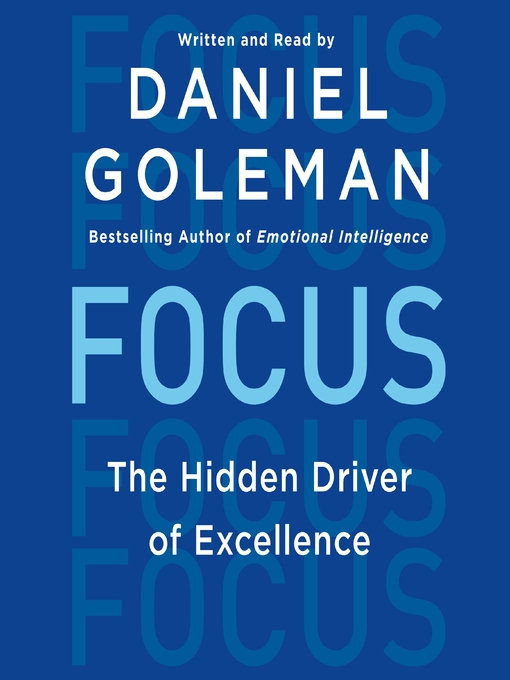In Focus, Psychologist and journalist Daniel Goleman, author of the #1 international bestseller Emotional Intelligence, offers a groundbreaking look at today's scarcest resource and the secret to high performance and fulfillment: attention.
Combining cutting-edge research with practical findings, Focus delves into the science of attention in all its varieties, presenting a long overdue discussion of this little-noticed and under-rated mental asset. In an era of unstoppable distractions, Goleman persuasively argues that now more than ever we must learn to sharpen focus if we are to survive in a complex world.
Goleman boils down attention research into a threesome: inner, other, and outer focus. Drawing on rich case studies from fields as diverse as competitive sports, education, the arts, and business, he shows why high-achievers need all three kinds of focus, and explains how those who rely on Smart Practices—mindfulness meditation, focused preparation and recovery, positive emotions and connections, and mental "prosthetics" that help them improve habits, add new skills, and sustain greatness—excel while others do not.




